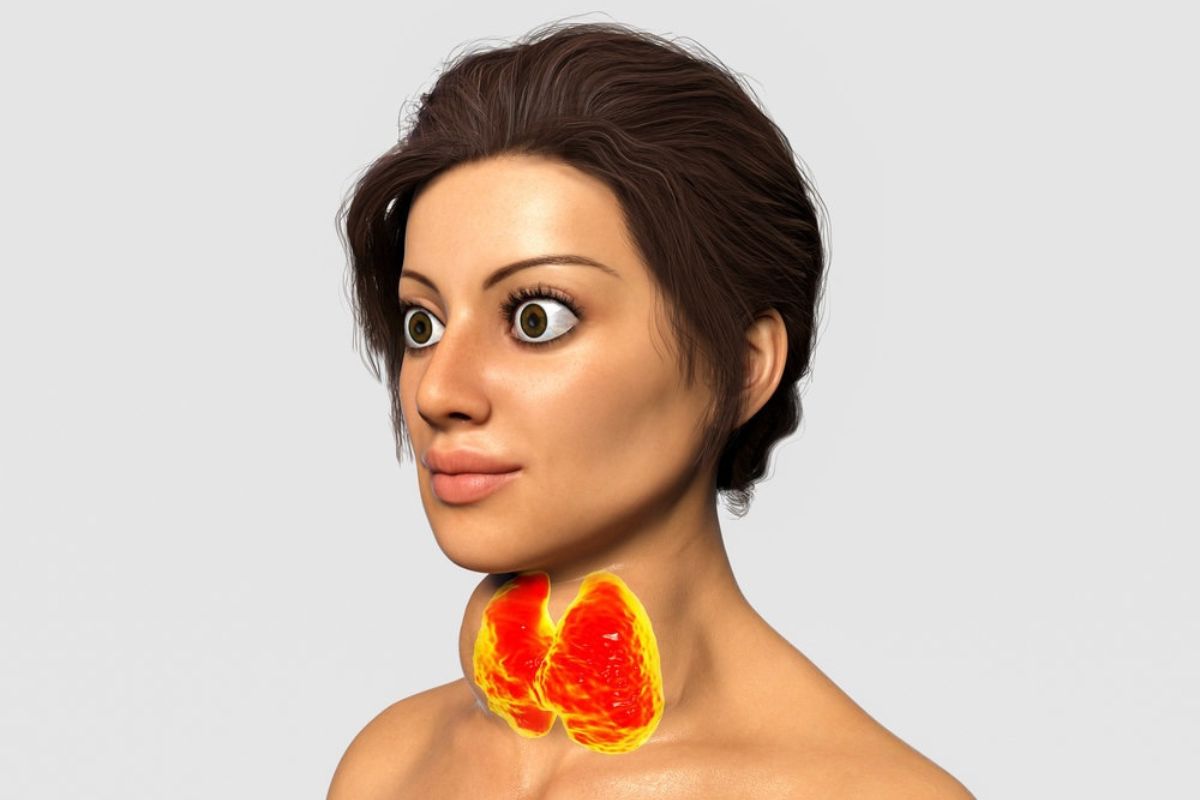
Graves–Basedow Disease is an autoimmune disorder that affects the thyroid gland, leading to hyperthyroidism. This condition can cause a range of symptoms, from weight loss and anxiety to bulging eyes and an enlarged thyroid. Graves–Basedow Disease is named after Robert Graves and Karl Adolph von Basedow, who first described it in the 19th century. Understanding this disease is crucial for managing its symptoms and improving quality of life. In this blog post, we will explore 25 intriguing facts about Graves–Basedow Disease that will help you grasp its complexities and impact. Whether you're newly diagnosed or just curious, these facts will provide valuable insights.
Key Takeaways:
- Graves–Basedow Disease is an autoimmune disorder causing an overactive thyroid. Symptoms include weight loss, rapid heartbeat, and anxiety. Early diagnosis and treatment are crucial for managing the condition effectively.
- Living with Graves–Basedow Disease involves regular check-ups, a healthy diet, stress management, and avoiding triggers like smoking. Joining support groups can provide emotional and practical support for managing the condition.
What is Graves–Basedow Disease?
Graves–Basedow Disease is an autoimmune disorder that affects the thyroid gland, causing it to produce too much thyroid hormone. This condition can lead to a variety of symptoms and complications. Here are some intriguing facts about this disease.
-
Named after Doctors: The disease is named after Robert Graves and Karl Adolph von Basedow, who independently described the condition in the 19th century.
-
Autoimmune Nature: It is an autoimmune disorder, meaning the body's immune system mistakenly attacks its own tissues.
-
Hyperthyroidism: Graves–Basedow Disease is the most common cause of hyperthyroidism, a condition where the thyroid gland is overactive.
-
Eye Problems: Many patients develop Graves' ophthalmopathy, which can cause bulging eyes, double vision, and eye irritation.
-
Skin Issues: Some people experience a skin condition called pretibial myxedema, which results in thick, red skin on the shins and feet.
Symptoms of Graves–Basedow Disease
Recognizing the symptoms early can help in managing the disease more effectively. Here are some common symptoms to look out for.
-
Weight Loss: Unexplained weight loss despite normal or increased appetite is a common symptom.
-
Rapid Heartbeat: Patients often experience a rapid or irregular heartbeat, known as tachycardia.
-
Anxiety: Increased levels of thyroid hormone can lead to anxiety, nervousness, and irritability.
-
Heat Sensitivity: People with this disease may feel unusually warm and sweat excessively.
-
Fatigue: Despite having an overactive thyroid, many patients feel fatigued and weak.
Causes and Risk Factors
Understanding what causes Graves–Basedow Disease and who is at risk can help in early detection and prevention.
-
Genetic Factors: A family history of thyroid disease increases the risk of developing Graves–Basedow Disease.
-
Gender: Women are more likely to develop this condition than men.
-
Age: It commonly affects people between the ages of 30 and 50.
-
Stress: High levels of stress can trigger the onset of the disease.
-
Smoking: Smokers are at a higher risk of developing Graves' ophthalmopathy.
Diagnosis and Treatment
Early diagnosis and appropriate treatment can significantly improve the quality of life for those affected by Graves–Basedow Disease.
-
Blood Tests: Blood tests measuring levels of thyroid hormones and thyroid-stimulating hormone (TSH) are crucial for diagnosis.
-
Radioactive Iodine Uptake: This test helps determine how much iodine the thyroid gland absorbs, aiding in diagnosis.
-
Antithyroid Medications: Drugs like methimazole and propylthiouracil help reduce thyroid hormone production.
-
Radioactive Iodine Therapy: This treatment destroys overactive thyroid cells, reducing hormone levels.
-
Surgery: In severe cases, part or all of the thyroid gland may be surgically removed.
Living with Graves–Basedow Disease
Managing the disease involves lifestyle changes and regular medical check-ups. Here are some tips for living with this condition.
-
Regular Monitoring: Frequent visits to the doctor for blood tests and check-ups are essential.
-
Healthy Diet: A balanced diet rich in vitamins and minerals can help manage symptoms.
-
Stress Management: Techniques like yoga, meditation, and deep-breathing exercises can reduce stress levels.
-
Avoiding Triggers: Staying away from smoking and other triggers can help manage the disease better.
-
Support Groups: Joining a support group can provide emotional support and practical advice for managing the condition.
Final Thoughts on Graves–Basedow Disease
Graves–Basedow disease, a common autoimmune disorder, affects the thyroid, leading to hyperthyroidism. Symptoms like weight loss, rapid heartbeat, and anxiety can disrupt daily life. Early diagnosis and treatment are crucial for managing this condition. Treatments range from medication to radioactive iodine therapy and, in some cases, surgery. Regular check-ups and monitoring help keep symptoms in check and prevent complications. Lifestyle changes, such as a balanced diet and stress management, also play a vital role in overall well-being. Understanding the disease empowers patients to take control of their health. If you or someone you know shows symptoms, consult a healthcare professional. Knowledge and proactive care make a significant difference in living with Graves–Basedow disease. Stay informed, stay healthy.
Frequently Asked Questions
Was this page helpful?
Our commitment to delivering trustworthy and engaging content is at the heart of what we do. Each fact on our site is contributed by real users like you, bringing a wealth of diverse insights and information. To ensure the highest standards of accuracy and reliability, our dedicated editors meticulously review each submission. This process guarantees that the facts we share are not only fascinating but also credible. Trust in our commitment to quality and authenticity as you explore and learn with us.
